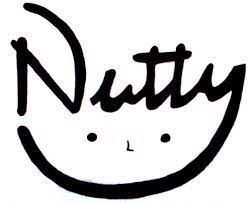Walk a Mile in Our Minds – ADHD, Dyslexia, and the Misunderstood Reality of High Standards
Living with dyslexia and ADHD isn’t just about letters jumping around on a page or a wandering mind — it’s about navigating a world that often doesn’t understand how you process, think, or feel.
Since I was a kid, I’ve had to work ten times harder just to keep up. But it also gave me a sharp eye for detail, an obsession with doing things right, and a fire to push through every obstacle thrown my way. My ADHD makes me relentless — I don’t do things halfway. Whether it’s a job, a piece of paperwork, or how a business presents itself online… it has to be done properly. No shortcuts. No half-hearted effort.
But here’s the thing no one talks about:
When you hold high standards — because your brain demands structure, clarity, and completion — people get frustrated with you.
They say I’m too intense. Too picky. Too fast.
They take offence because I want things done immediately, thoroughly, and with the same passion I bring every single day.
And when people don’t communicate, don’t say please or thank you, or leave things unfinished — it affects me deeply. It’s not being awkward, it’s how my brain is wired.
This mindset has slowed my company’s growth at times — not because the vision was wrong, but because some people couldn’t handle the way I work. Instead of recognising the impact of ADHD or understanding the drive behind my urgency and attention to detail, they took it personally.
They said I couldn’t accept fault. That I was never wrong. That I was too intense, too quick to point things out, too obsessed with doing things right.
But here’s the truth: it wasn’t about them. It was about how my brain processes pressure, information, and expectations.
Rather than asking why I needed structure, why I chased clarity, or why things had to be done a certain way — they became defensive. They assumed criticism when there was none. They mistook focus for control, and precision for perfectionism.
And instead of trying to understand, they chose to walk away — from the project, the team, or the bigger vision.
Let me be clear:
Neurodiversity isn’t a weakness.
My attention to detail, my urgency, my high standards — they’re part of what built everything I have.
But we need a world — and a business culture — that stops punishing people for the way their brain works.
Not everyone sees the world in the same way. Some of us feel overwhelmed by too much information. Some of us shut down when systems don’t make sense. Some of us just want to be understood — not fixed.
People with ADHD are wired differently — not just in how they work, but in how deeply they feel. We care intensely. We want to do right by others. But when we come under fire from those who don’t understand how our minds operate, it hits hard. What might seem like a small comment to someone else can trigger instant self-doubt, anxiety, or even depression in us. We’re not being dramatic — we’ve just spent our whole lives being misunderstood, and every time it happens again, it cuts deeper than most people realise.
So, if someone you work with asks questions, checks things twice, chases for clarity, or expects a higher standard — maybe they’re not being difficult. Maybe they’ve just spent a lifetime trying to thrive in a world that doesn’t quite fit.
And maybe — just maybe — that’s the kind of mind you should be learning from, not running from.

